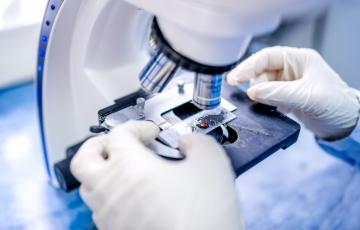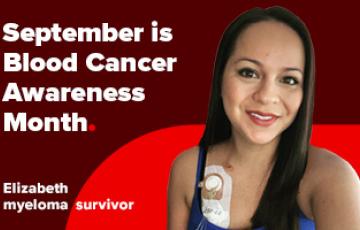Search Results
Polatuzumab vedotin-piiq
Polatuzumab vedotin-piiq is FDA approved
Acalabrutinib
Acalabrutinib is a kinase inhibitor indicated:
- In combination with bendamustine and rituximab for the treatment of adult patients with previously untreated mantle cell lymphoma (MCL) who are ineligible for autologous hematopoietic stem cell transplantation (HSCT).
- For the treatment of adult patients with MCL who have received at least one prior therapy.
- For the treatment of adult patients with chronic lymphocytic leukemia (CLL) or small lymphocytic lymphoma (SLL).
Pembrolizumab
Pembrolizumab is FDA approved for the treatment of

Clinical Trials: Why They Matter and How to Make Them More Accessible
Cancer treatments can be lifesaving. As an organization, The Leukemia & Lymphoma Society (LLS) has invested more than $1.7 billion in blood cancer research since its inception in 1949—all with the hope that this research leads to scientific breakthroughs that improve and save lives.
But to make sure this research leads to safe and innovative treatments, we have to thoroughly test it.
Improving CAR-T cell therapy outcomes for patients with for aggressive lymphoma and multiple myeloma
Despite the promise of CAR-T cell immunotherapy for patients with lymphoma and multiple myeloma, a significant proportion of patients fail to respond or relapse following treatment. This project will focus on the clinical translation of a new treatment designed to improve durable response rates by combining CAR-T cell therapy with a new class of anticancer drugs called SMAC-mimetics. The results will provide the evidence base to drive a first-in-human clinical trial of this combination strategy.Enhancing efficacy of cyclin-dependent kinase inhibitors in diffuse large B-cell lymphoma
Nearly half of patients with diffuse large B-cell lymphoma (DLBCL), ultimately fail current therapies and die from their disease. Selective targeting of cyclin-dependent kinase 9 (CDK9) is a promising strategy, as evidenced by potent anti-tumor effects in preclinical models of DLBCL. Yet tumors evade therapy by developing resistance. This proposal seeks to both elucidate and circumvent the oncogenic events underlying this resistance in order to offer novel therapeutic approaches to treat DLBCL.Ibrutinib
Ibrutinib has been FDA-approved to treat:
- Patients with chronic lymphocytic leukemia (CLL)/small lymphocytic lymphoma (SLL).
- Patients with chronic lymphocytic leukemia/small lymphocytic lymphoma (SLL) with 17p deletion.
- Patients with Waldenström macroglobulinemia (WM).
- Adult and pediatric patients age 1 year and older with chronic graft versus host disease (cGVHD) after failure of one or more lines of systemic therapy.
Obinutuzumab
Obinutuzumab is FDA-approved
Pirtobrutinib
Pirtobrutinib is indicated for the treatment of

What’s Next in Blood Cancer: Looking Ahead to 2023
The most important blood cancer scientific meeting, the American Society of Hematology (ASH), is held every December.

Defining and Redefining a Blood Cancer Diagnosis
Science historian June Goodfield wrote, “Cancer begins and ends with people.”
This Blood Cancer Awareness Month, it’s important to know that The Leukemia & Lymphoma Society (LLS) is on a mission to cure blood cancers and improve quality of life for the nearly 1.7 million people in the U.S. living with or in remission from blood cancer.
LLS is all about people—an organization full of people who are united in the urgent effort to help every person impacted by blood cancer.
Cyclophosphamide
Cyclophosphamide is FDA approved to treat several types of cancer, including people who have Hodgkin lymphoma, non-Hodgkin lymphoma, acute and chronic lymphocytic leukemia, acute and chronic myeloid leukemia, myeloma, and mycosis fungoides. Cyclophosphamide is usually used in combination with other drugs.
Cyclophosphamide may cause a temporary loss of hair in some people. After treatment has ended, normal hair growth should return, although the new hair may be a slightly different color or texture.

Researchers Share Key Career Advice with LLS College Club Members
I recently had the privilege of moderating an LLS on Campus Researcher Panel attended by LLS college club members from nearly 30 universities across the country. These clubs bring together students interested in pursuing health-related careers and provide opportunities to hear from scientists working to better understand and treat blood cancers.
Dacarbazine
Dacarbazine is used to treat people who have Hodgkin lymphoma as a second-line therapy when used in combination with other agents and is also used as initial therapy for some patients with Hodgkin lymphoma. It may cause a temporary loss of hair in some people. After treatment with dacarbazine has ended, normal hair growth should return.
Selinexor
Selinexor is FDA approved
